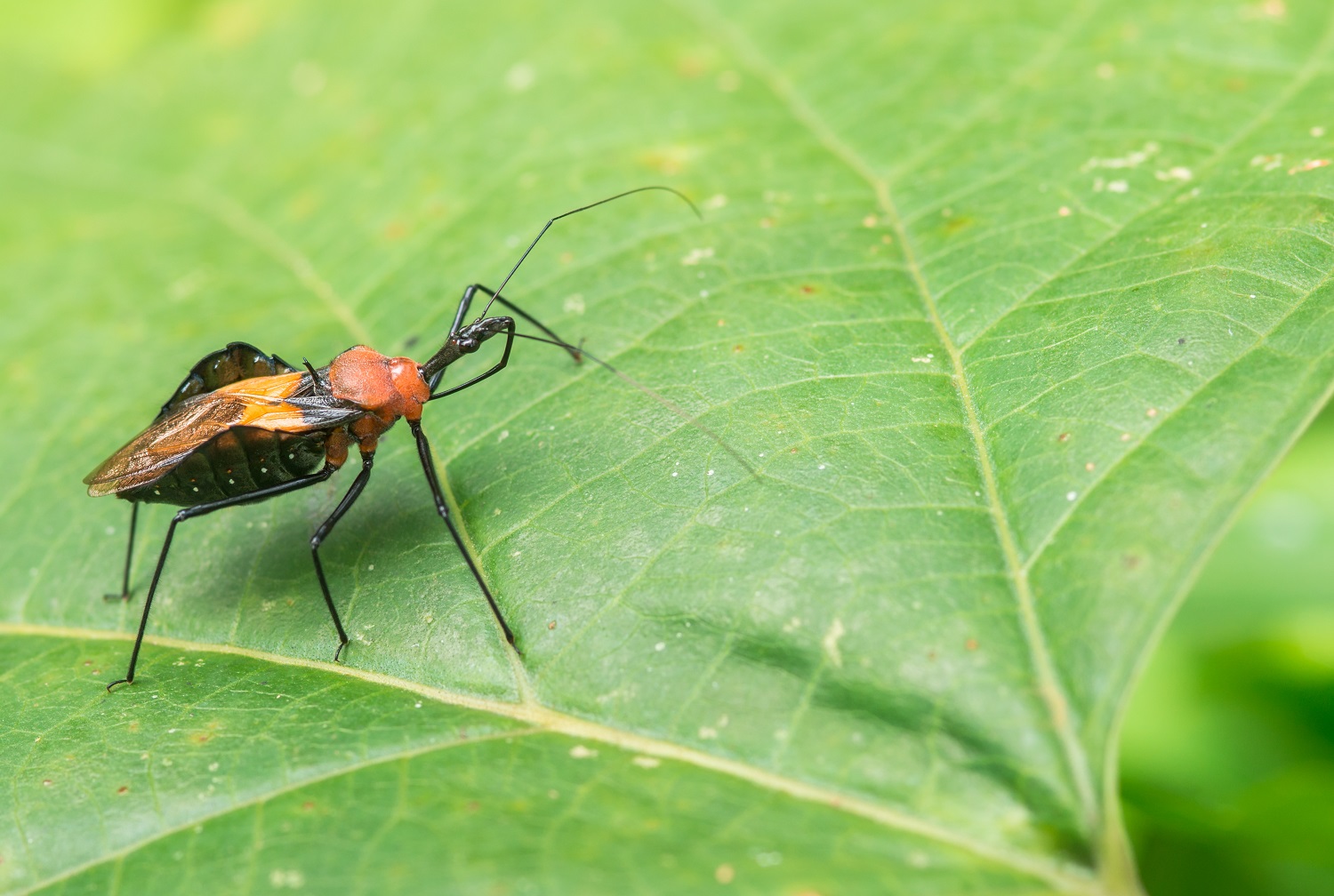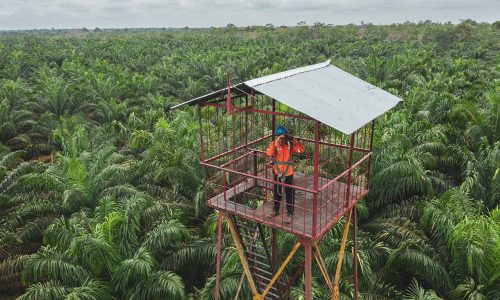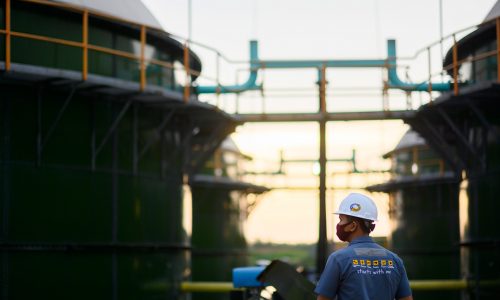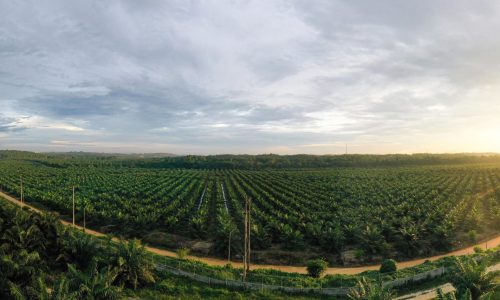Going above and beyond in climate stewardship for a sustainable tomorrow
Climate Values
As a company whose business is closely tied to the environment, Asian Agri is committed to proactive efforts in conservation, restoration, and management of the earth’s precious natural resources through protection-production partnerships. Guided by our triple-bottom line principles, we commit ourselves, including our smallholder partners, to sustainable and responsible production.
Conservation and Biodiversity
High Carbon Stock Conservation
Asian Agri is committed to no deforestation and the conservation of High Carbon Stock (HCS) forests. We have established a Technical Committee (TC) comprising six experienced scientists specializing in relevant fields ranging from biomass to remote sensing to sustainable development. These experts help us strategically define HCS forests and establish HCS methodology and thresholds that take into account potential GHG emissions and regional socio-economic factors.
Protection of High Conservation Value Areas
Most of our operations are established in degraded forests with relatively low biodiversity value in line with our commitment to the protection of High Conservation Value (HCV) areas. Our concession areas are obtained in full compliance with all government regulations, including on protected areas. Within our estates, plasma, and KKPA areas, we identify conservation areas in collaboration with academics and NGOs. This is to ensure minimal disruption to protected and endangered species, habitats of certain wildlife, riparian zones, and areas with high cultural value for local communities within our estates from our operation. With the help of these experts, we also develop strategies for the management of these conservation areas based on HCV assessments using HCV Toolkit 2008.

Fire Management
Zero-Burning Policy
Since 1994, we have implemented a strict zero-burning policy, which also binds our third-party partners across our supply chain. We closely monitor hotspots for risk of fires through a dedicated team and satellite imagery and have an extensive emergency response procedure that allows for quick response to fire outbreaks in our plantations. This procedure entails a trained fire-fighting team, warning system, and well-maintained fire safety equipment.
Fire-Free Village Program
We are part of the multi-stakeholder Fire-Free Village Program (FFVP), a community-focused program that seeks to prevent fires rather than fighting or suppressing them after they have already started. Piloted in 2014 by APRIL Group, the program has since expanded to include more villages and stakeholders who are both trained to eliminate slash-and-burn practices and educated on the impacts of illegal fires on the local environment and our global climate. By working with villagers in Indonesia, the program enables, empowers and incentivizes villagers to cease land burning practices. We are also a member of Fire Free Alliance, working with other companies, NGOs and government to prevent fire in Indonesia.

Integrated Pest Management
Asian Agri strives to reduce the use of chemicals, including through Integrated Pest Management (IPM) within our operations. Our pest management ecosystem includes owls as natural predators to catch rats and insects that hunt caterpillars that would otherwise eat the palm oil fruit.

Water, Waste and Energy
Water Management
Water recycling and energy efficiency are critical to our operations. We invest in water treatment technologies to maintain clean water and minimize wastage, keeping water withdrawals below the government-set guidelines. We also monitor ground water quality in our plantations twice a year in conjunction with government authorities.
Waste Management
Asian Agri has a zero-waste management policy. Any unavoidable waste is tested by external parties to ensure its compliance with Indonesian standards before being discharged or recycled. We recycle the organic waste from our production to be used as fertilizer and biofuel.
Peatland Protection
We have mapped the peatlands across Asian Agri’s estates to guide the best management practices, which include proper nutrition, optimal water management, and water subsidence monitoring. As a member of RSPO, we implement RSPO’s best practices for water management on peatlands. This includes conducting a drainability study to determine the suitable water management approach to prevent water inflow during the monsoon period and over-drainage.
GHG Emission Monitoring and Reduction
We closely monitor GHS emissions from our mills and estates in accordance with ISCC guidelines and RSPO GHG Palm Calculator. Verified by certified auditors, this data serves as our reference in continuously reducing our emission. Our effort includes installing methane capture technology in our biogas plants, which significantly aids reduction of our carbon footprint.





